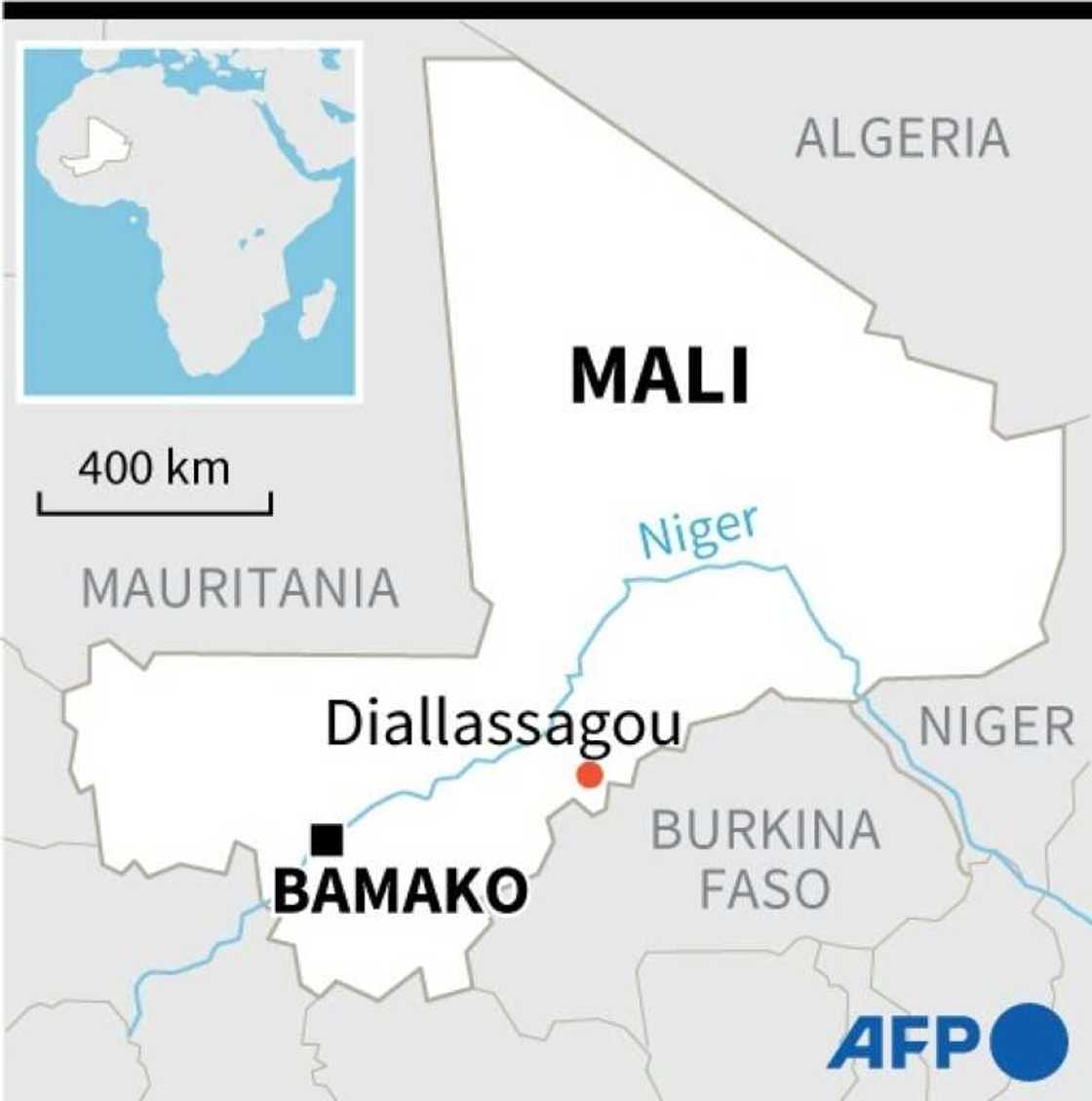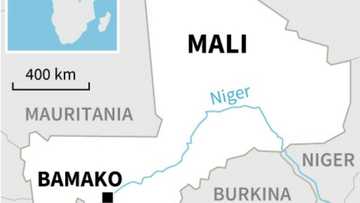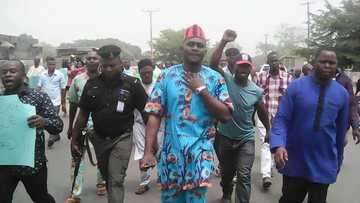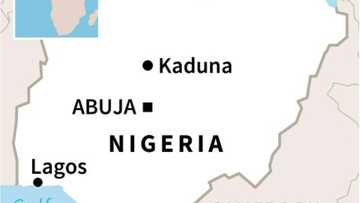Malians march for state protection after massacre

Source: AFP
PAY ATTENTION: Click “See First” under the “Following” tab to see Legit.ng News on your Facebook News Feed!
Dozens of Malians demonstrated Tuesday in the central town of Bankass to demand protection from the state after suspected jihadists massacred more than 130 civilians in nearby neighbouring villages.
The mass killing -- the latest in a series of attacks across the Sahel -- resulted in one of Mali's highest civilian death tolls.
Villagers continued to search for the missing Tuesday, raising fears of an even greater toll.
The government says fighters from the Fulani religious leader Amadou Koufa's armed group, the Macina Katiba, killed 132 civilians in Diallassagou and two surrounding villages, a few dozen kilometres (miles) from Bankass.
Junta leader Colonel Assimi Goita has declared three days of mourning and a government delegation was sent to the scene Tuesday.
Political leaders expressed compassion with the victims' families, while rallying around the armed forces.
PAY ATTENTION: Subscribe to Digital Talk newsletter to receive must-know business stories and succeed BIG!
But a group of political parties named the "Cadre d'echange", or Exchange Framework, demanded Goita make an in-person visit and said the authorities had a responsibility to take "the necessary measures so that such tragedies are not replicated".
Residents of Bankass, the main town in the region, held a demonstration on Tuesday.
Photos sent by a Dogon community association show several dozen people gathered in the street.
"We have gathered despite the rain to call for security, and to condemn the crimes," Oumar Togo, a member of the Bankass youth association, told AFP by telephone.
"The government must ensure our security."
'Absolute priority'
Local officials said dozens of jihadists appeared on motorcycles, then rounded up and massacred dozens of men over the weekend.
They also said the armed men burned down shops, looted villages and stole cattle.
The bloodbath is believed to have culminated on Saturday night, with many people fleeing their homes.
Central Mali has been plagued by violence since the Al-Qaeda-affiliated Katiba Macina emerged in 2015.
Much of the area is beyond state control and is prone to violence by self-defence militias and inter-community reprisals.
On March 23, 2019, more than 160 Fulani civilians were massacred in the village of Ogossagou.
Since 2012, Mali has been rocked by an insurgency by groups linked to Al-Qaeda and the so-called Islamic State group.
Violence that began in the north has since spread to the centre and neighbouring Burkina Faso and Niger.
Thousands of civilians and combatants have died and hundreds of thousands have been displaced in one of the world's poorest regions.
The military seized power in 2020 after months of protests against the civilian government's failure to stop the deadly spiral.
Junta leaders on Monday said the safety of Mali's citizens remained their "absolute priority".
They have recently turned away from Mali's former military allies, including France, and towards the Russians.
Local agreements
But Mali has seen a series of mass killings in recent months, including in the so-called three-border area on the border with Niger and Burkina Faso.
Burkina Faso experienced one of the worst massacres in its history earlier this month, with 86 civilians killed in Seytenga, in the north.
Civilians are often subjected to reprisals by jihadists who accuse them of collaborating with the enemy.
Some areas of Mali, especially in the centre, have fallen under the jihadists' control.
Civilians are also frequently caught in the crossfire between armed groups, including those affiliated with Al-Qaeda and the Islamic State.
No one has claimed responsibility for the Diallassagou massacre.
Such mass killings are typically attributed to Islamic State-affiliated groups rather than Al-Qaeda-affiliated groups.
However, it is normally the Katiba Macina that operate in the Bankass area.
Nouhoum Togo, a local elected official in Bankass, told AFP the attack was a reprisal against locals after the Malian army on June 10 carried out an operation there, in which it said it had "neutralised" six jihadists.
Two thirds of Mali remains beyond state control.
Source: AFP






